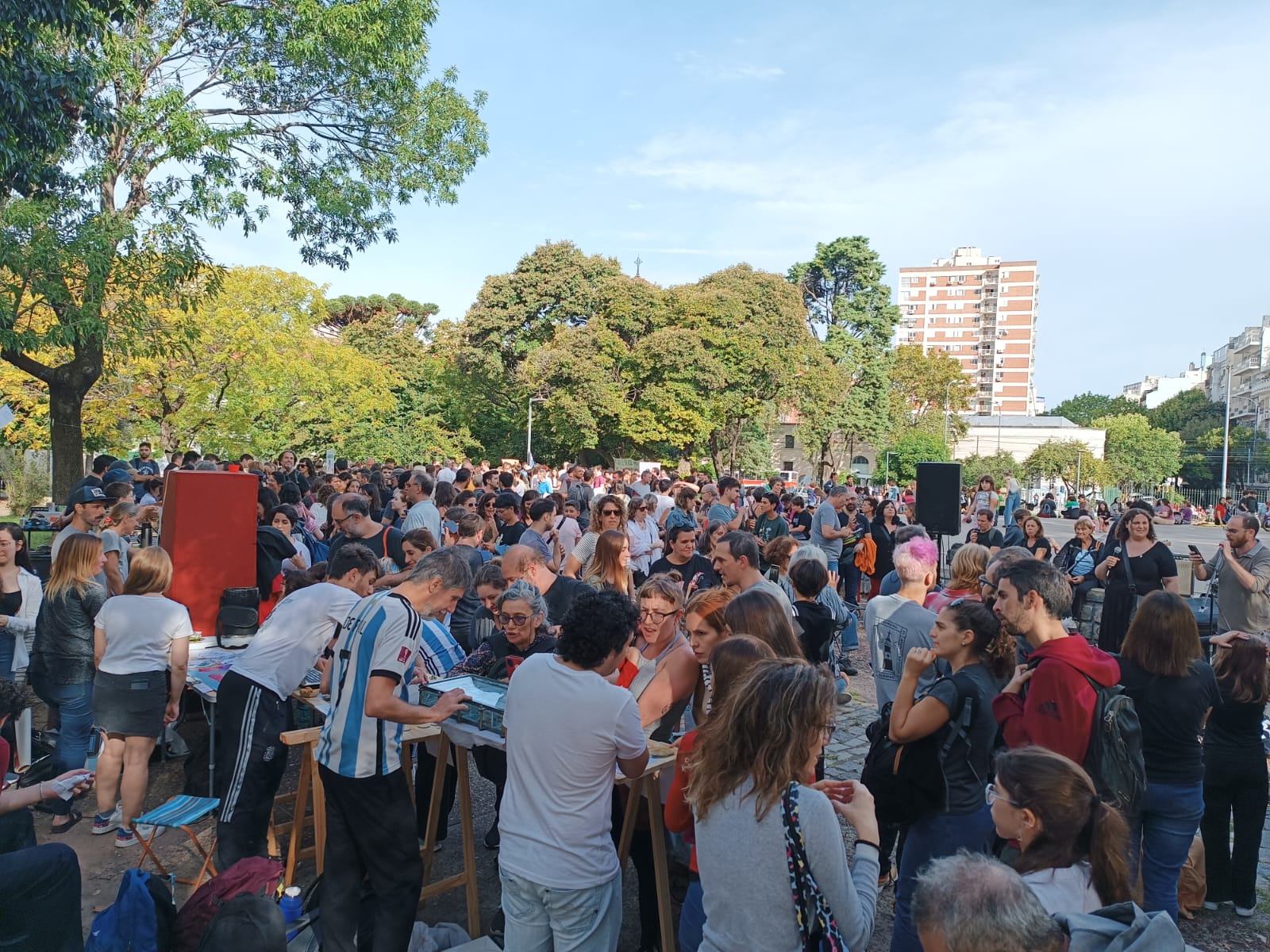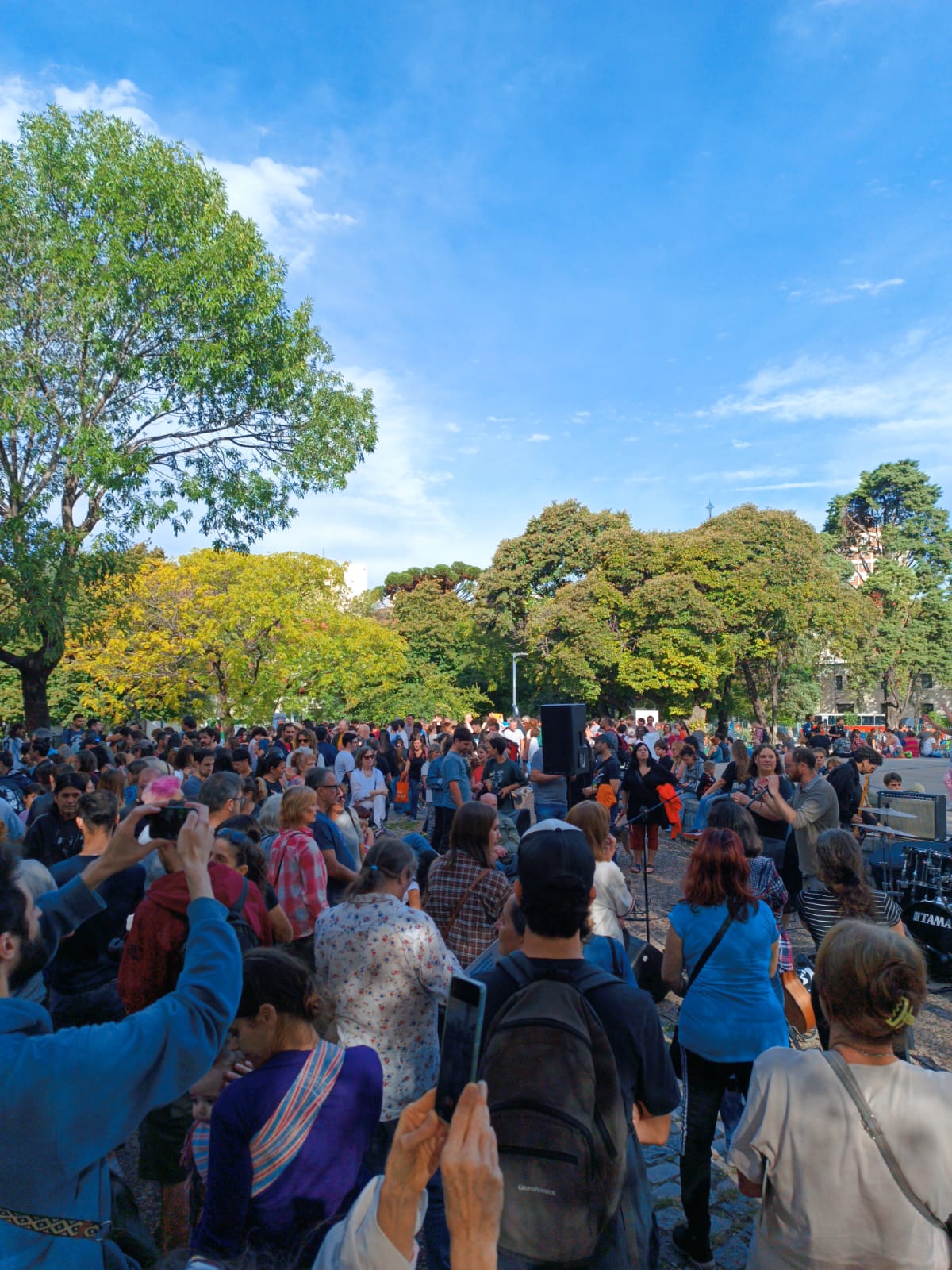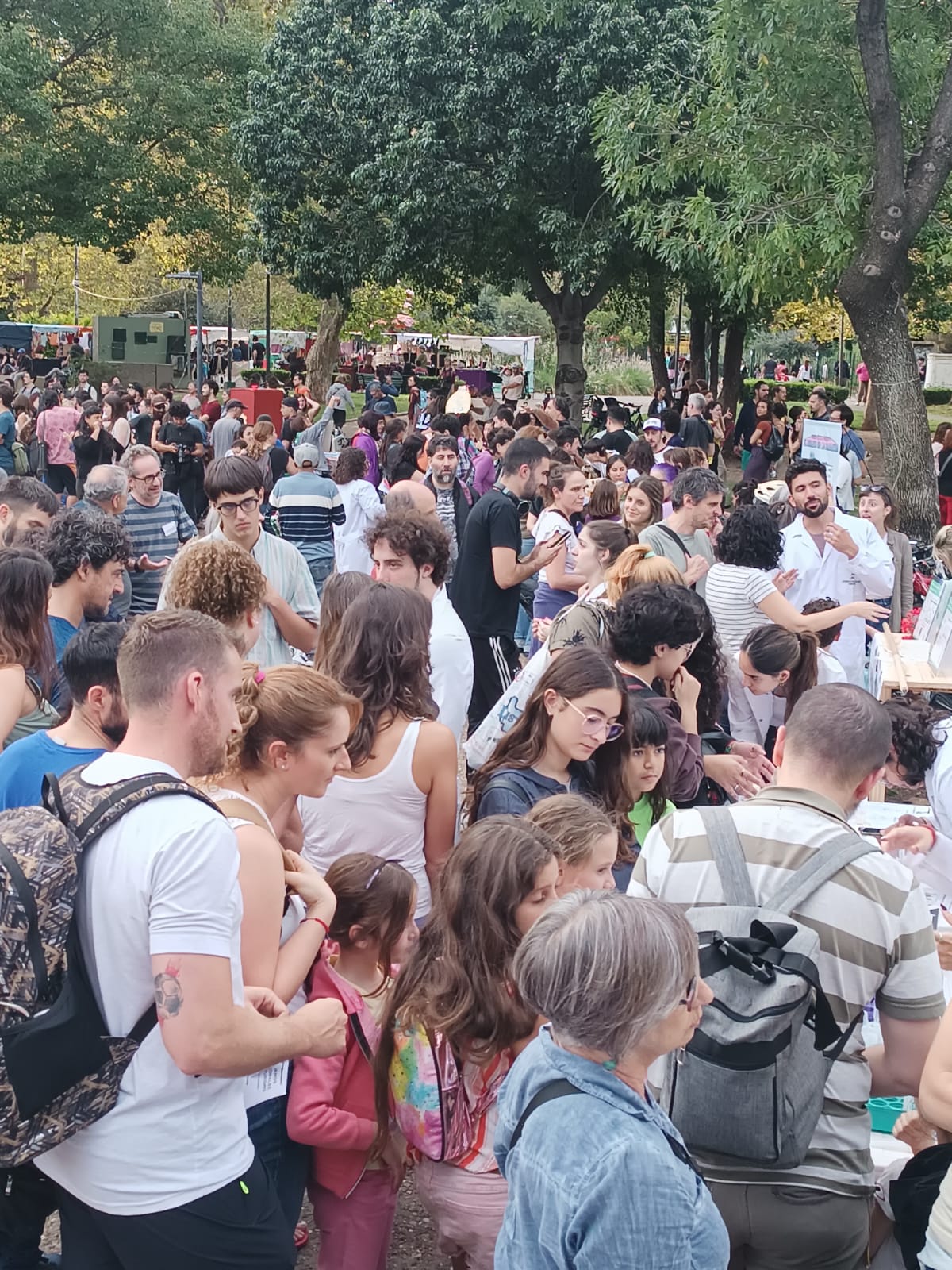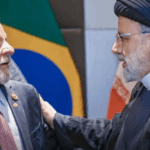
Since the first days of its mandate, Javier Milei’s far-right denialist government has been adopting predatory economic austerity measures that threaten the continuity of research projects and initiatives and the careers of thousands of scientists in the country.
Seeking to respond to this crisis, this weekend the event “I choose to grow: Science x Argentina” took place, consisting of lectures, debates, experiments and music, organized by scientists and communicators.
by Bruno Falci, from Buenos Aires, for Portal O Cafezinho
The situation in Argentina’s science and education sector is alarming. Since the first days of its mandate, Javier Milei’s far-right denialist government has been adopting predatory economic austerity measures that threaten the continuity of research projects and initiatives and the careers of thousands of scientists in the country.
The Ministry of Science, Technology and Innovation was transformed into a secretariat. CONICET – National Council for Scientific and Technical Research -, the main body dedicated to promoting science and technology in Argentina, projects that the annual budget is only enough to cover expenses until next June. Then there will be no more money and the country’s 300 federal research institutes will collapse.
Seeking to respond to this crisis, this weekend the event “I choose to grow: Science x Argentina” took place, consisting of lectures, debates, experiments and music, organized by scientists and communicators, in an initiative self-managed by people who work in science.
There was also a concern to inform the scientific work carried out in Argentina. The event took place this weekend, between April 6th and 7th, in more than 100 cities across the country, from Jujuy to Tierra del Fuego, from Río de la Plata to the Cordillera. In Buenos Aires, the ceremony took place on Saturday, from 2pm to 6pm, at Parque Centenário and Parque Saavedra. The closing took place on Sunday at the same time, but at Parque Rivadavia.
A center of excellence
Currently, more than 11.8 thousand researchers work at CONICET, more than 11.8 thousand doctoral and post-doctoral fellows, more than 2.9 thousand technicians and research support professionals and approximately 1.5 thousand administrative employees. They work distributed throughout the country – from Antarctica to Puna and from the Andes Mountains to the Argentine Sea – in their 16 Scientific and Technological Centers (CCT), 8 Research and Transfer Centers (CIT), a Multidisciplinary Research Center and more than 300 Institutes and Centers exclusive to CONICET and with double and triple dependence on national universities and other institutions.
Its activity is developed in four main areas of knowledge: Agricultural, Engineering and Materials Sciences, Biological and Health Sciences, Exact and Natural Sciences and Social and Human Sciences.
Argentine science is recognized worldwide by scientists, Nobel Prize winners and universities of excellence. To date, five Argentines have been awarded the Nobel Prize, three in the scientific field: Luis Federico Leloir (1970), awarded in the Chemistry category, Bernardo Houssay (1947) and César Milstein (1984), winners of the Physiology/Medicine award. Carlos Saavedra Lamas (1936) and Adolfo Pérez Esquivel (1980) won the famous Nobel Peace Prize.
In a joint letter signed by scientists from all over the world, sent to Milei, in March 2024, 68 Nobel Prize winners from different areas, protest stating that science in Argentina is on the brink, with the drastic reduction of scholarships for students and researchers and the freezing of most research programs. The document was released by British chemist Richard Roberts, winner of the 1993 Nobel Prize for Medicine.
In February 2024, the president of ABC – Brazilian Academy of Sciences -, Helena Bonciani Nader, had also expressed her deep concern in a letter sent to Javier Milei, given the Argentine president’s recent statements, and emphasizing the importance of CONICET for the world science. “CONICET’s work has been fundamental in generating essential specialized knowledge to meet the needs of the public and private sectors, resulting in fronts at national and international level and contributing to the development of companies with a strong technological component”.
The statement summarized in broadcasts on social media is concrete: “We cannot stand idly by in the face of the destruction of the scientific and technological system”.

In conversation with radio AM750, the doctor in chemistry and one of the organizers of the event, Valeria Eldestzein, explained the genesis of Elijo Crecer.
“This started in January, when my partner and I found out about the layoffs at C3 (Cultural Science Center), so we started thinking about what could be done. During Macri’s time, festivals were held in defense of the public university,” he said.
“It’s a festival to bring science and society closer together. So that people can learn a little more about what we do, but it is also a fighting action. Our slogans are against the dismantling of science and technology; for compliance with the science and technology financing law and against arbitrary dismissals in the State”, he noted.
The main objective of the meeting was to show society local advances and make visible the need for a State to promote policies in the area. Just like in times of Mauricio Macri’s neoliberal government (2015-2019) and budget suffocation, the scientific community took to the streets to tell what they do and to celebrate the democratization of knowledge.
Several groups presented their experiences about what they work on and the impact of their research. They also clarified that the event aimed to defend the Argentine scientific system and show the community the importance of science for the development of the provinces and the country, in addition to demonstrating against the dismantling of the sector and layoffs in the State.
Argentine science and education workers called themselves together to defend them in every corner of the country. Primary, secondary, tertiary and university teachers participated in the festival, as well as non-teaching staff from public universities, researchers, science communicators, administrative, service and support staff, technical staff and librarians.

Science and development of the country
In a letter of intent, its organizers demonstrate the conviction that science and research are the engine of a country’s development.” The objective is to integrate Argentine science into the community from all corners of the territory. We also want to show what we do, listen to what the needs are and dialogue with society”. The letter emphasizes that the event is necessary because the scientific-technological system is paralyzed and dismembered, worker by worker, organ by organ, institute by institute.
The organizers consider this act to be political, although it does not belong to any particular party. “It is a united front of struggle, a diverse community committed to three mottos: For compliance with the law on financing the national science, technology and innovation system. Against the dismantling of the science and technology system. Against arbitrary dismissals in the State.”
The event was also considered a celebration.” It’s time to fight against this, we know that, but also to not let it take away our enthusiasm and pride in what we do, to celebrate science. In every center, in every city, in every corner of the country we invite you to defend it. You will find lectures, stands, interviews, treasure hunts, music, experiments, questions and answers, book fairs and much, much more”, concludes the document.
Source: https://www.ocafezinho.com/2024/04/08/argentina-contra-milei-e-o-obscurantismo/

